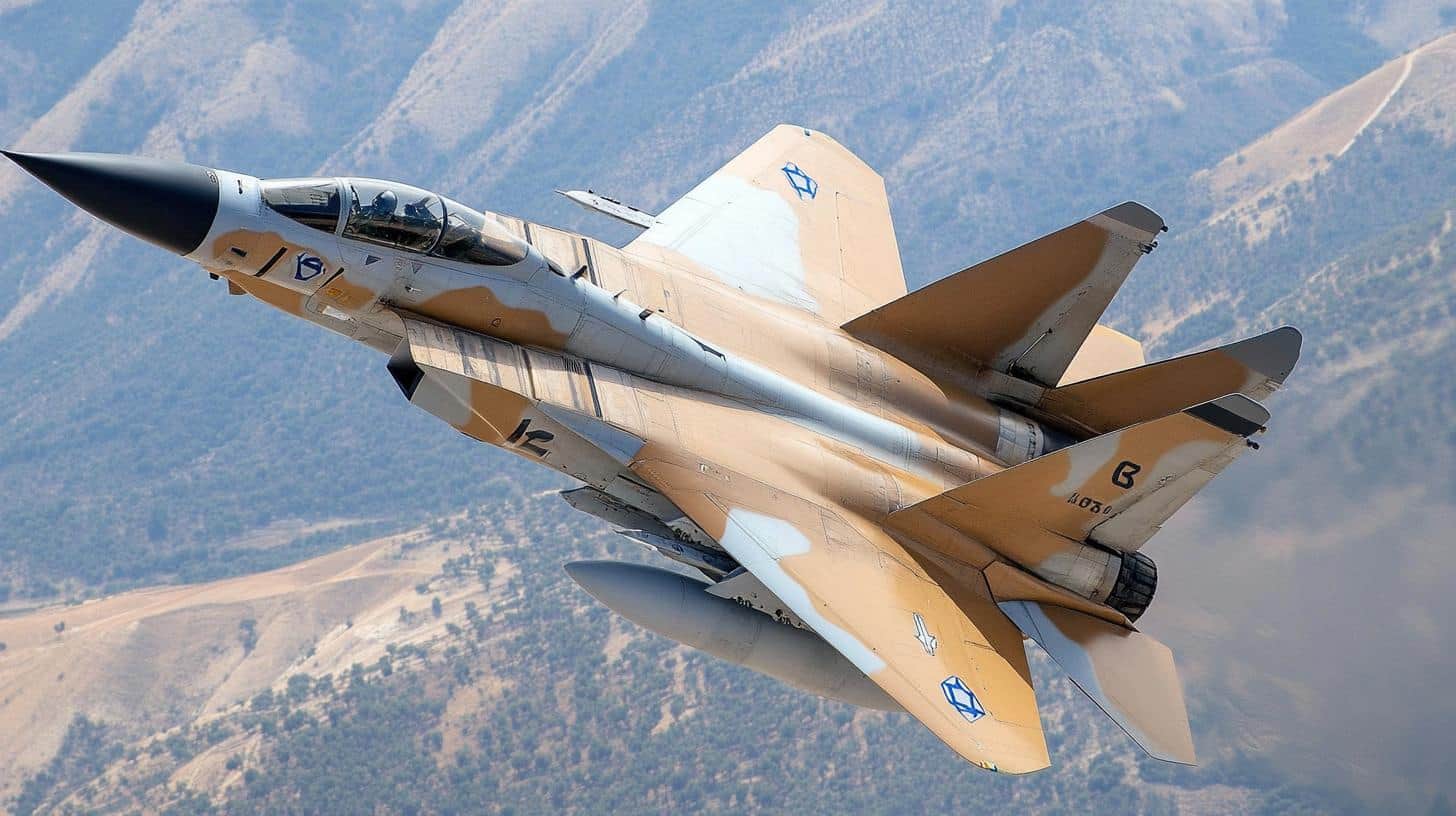Historic Deal: Israel and Boeing’s Strategic Partnership
In a significant military development, the Israeli Ministry of Defense has confirmed an acquisition plan involving 25 F-15IA fighter jets from global aerospace giant Boeing, alongside the potential purchase of an additional 25 aircraft. This deal, valued at a remarkable $5.2 billion, is subsidized through US military aid, underscoring the strength of US-Israel defense relations. The announcement came on November 7, 2024.
Advanced Capabilities and Technological Integration
The introduction of the F-15IA, known elsewhere as the F-15EX Eagle II, represents a leap in aerial combat technology for Israel. Featuring the superior F110-GE-129 engines, the aircraft comes equipped with a state-of-the-art digital cockpit, upgraded radar, and sophisticated electronic warfare systems. It also boasts enhanced communication abilities with F-35 aircraft and is capable of carrying as many as 24 air-to-air missiles, asserting its role as a premier airborne asset.
Strategic Bolstering of Air Power
The Ministry of Defense highlights this advancement as crucial for enhancing Israel’s air capabilities, particularly noting the strategic importance during ongoing military conflicts. A senior official emphasized the role these jets will play alongside the third squadron of F-35 jets procured earlier, elevating Israel’s aerial prowess and defense reach.
In related developments, the US has approved upgrades for 25 F-15I fighters and has supported Israel’s request for more F-35I ‘Adir’ jets, further expanding Israel’s fleet to 75, as part of a broader strategic initiative approved earlier. This marks a pivotal enhancement in Israel’s defensive and strategic positioning.
Unveiled: The High-Stakes Impact of Israel’s New Fighter Jet Deal
How the Boeing-Israel Deal Influences Global Dynamics
While the recent announcement of Israel acquiring 25 F-15IA fighter jets from Boeing grabs headlines, the broader implications of this strategic partnership resonate on multiple levels, reshaping geopolitical paradigms and eliciting mixed reactions globally. The acquisition, backed by $5.2 billion and supplemented by US military aid, underscores a complex web of international alliances and defense strategies that extend beyond mere military enhancement.
Implications for Regional Stability and Tensions
The significance of Israel’s military expansions cannot be overstated. For Middle Eastern neighbors, Israel’s bolstering of its air force signals a clear message of deterrence, potentially heightening tensions in an already volatile region. Nations such as Iran may view this bolstering as a direct threat, prompting shifts in regional defense posturing or prompting arms races among neighboring states. Questions arise on whether such advancements improve Israel’s security or exacerbate regional hostilities.
The Balance of Military Modernization
The acquisition of the F-15IA fighters represents not only technical advancements but also an evolving doctrine in aerial warfare. These aircraft enhance Israel’s capabilities for precision strikes, electronic warfare, and advanced reconnaissance missions. However, the reliance on US military aid sparks criticisms of increasing dependencies and ethical considerations regarding foreign policy dynamics, particularly as it affects Palestinian relations or US involvement in Middle Eastern conflicts.
Advantages of Strengthened Defense Ties
This deal reinforces the United States’ strategic commitment to Israel, affirming the country as a crucial ally. For Israel, the advanced F-15IA jets offer a qualitative edge, ensuring air superiority and enhancing national security. The technological integration between the F-15IA and other defense platforms like the F-35 is noteworthy, allowing seamless communications and operations essential for modern warfare.
Conversely, the financial burden of military expansions could spark debates about resource allocations, raising questions about the trade-off between defense spending and public welfare. Is the national security gain proportional to the economic sacrifices required, and how will future generations bear these financial commitments?
Technological Marvel or Costly Venture?
The new Boeing-Israel deal shines a spotlight on the exceptional capabilities of the F-15IA, with its powerful engines, digitized cockpits, and enhanced weaponry. However, the emphasis on advanced military technology invites controversy over which innovations are genuinely pioneering versus those reused with new branding. Are these features a genuine frontier in military aviation, or are they iterative advancements dressed as innovation?
Controversial Questions and Global Reactions
Globally, this deal stirs discussions on arms proliferation and the moral responsibilities tied to military alliances. How do nations balance their security imperatives with the ethical implications of arming allies situated in conflict-heavy regions? Furthermore, considering the scale and scope of such military contracts, how transparent are their processes and outcomes in fostering peace and stability?
The multitude of perspectives this deal evokes points to a broader dialogue beyond Israel and Boeing, one that dives into the intricacies of modern defense strategy, international alliances, and their far-reaching societal impacts. To delve deeper into allied defense strategies and evolving military technologies, consider exploring:







